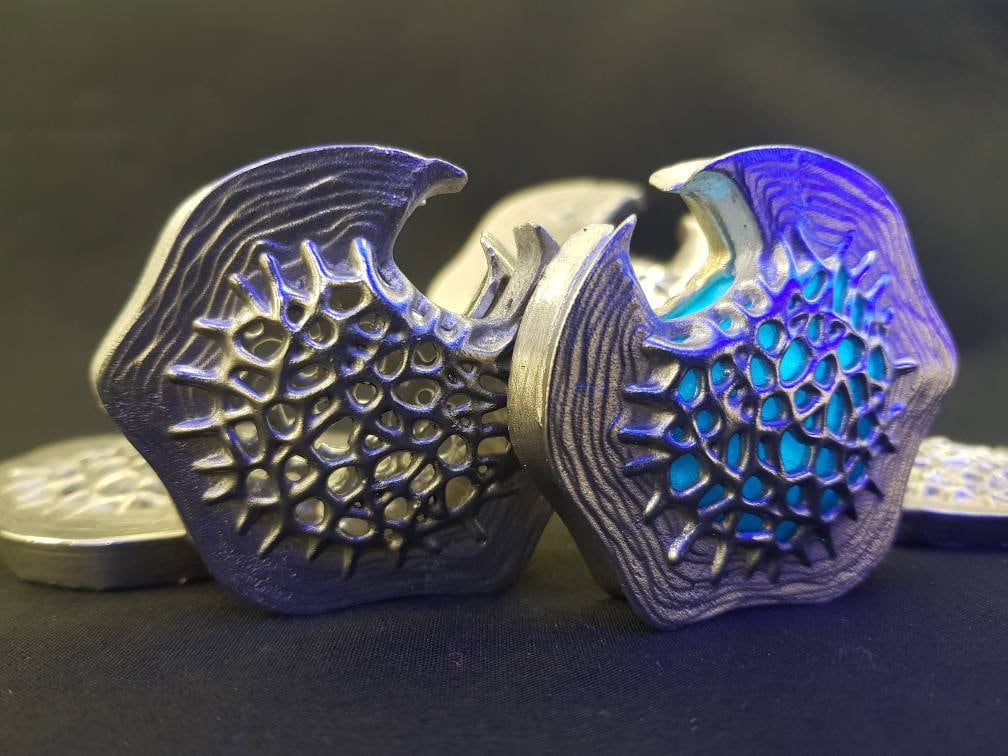Fun fact: the brain is the only organ to have named itself…

Did the brain really name itself, or did we, an outside force, name it? Well, having watched the three assigned TV shows, I can safely say that I frankly have no clue. In any case, it doesn’t change the fact that each episode has a unique way of viewing the brain/mind.
Altered Carbon has been sitting on “My List” on Netflix for months now, and I’m glad I had the opportunity to watch it. I’m a sucker for cyberpunk settings, and the shows portrays it very well (I’m planning on continuing it). In any case, the show takes a more cybernetic approach to the brain. To quickly summarize, since folks have covered this already, people can transfer their consciousness into a different body after they die. This body is called a sleeve. Inside their nape, they have cortical chips, which “hold” their memories, feelings, senses of touch, etc. Takeshi Kovacs is transferred into a body 250 years after his death. He is hired to solve the murder of Laurens Bancroft because of his status as an Envoy.

In this universe, people can solve their own murders by simply being transferred into a different body and telling the police who killed them. Very neat, right? Not only do they get a new body for free, but they also imprison the ones who took their lives. Actually…well, it’s a bit more complicated than that. Very early on, the show makes a point of this. We see a very young girl “sleeved” into an elderly woman’s body.

Apparently, despite having a right to a free sleeve, Cindy only gets “what’s in inventory”. The only way they could get her in a body fitting her age is to pay for an upgrade (this is obviously a ploy get rid of old sleeves, since the government could easily give a body appropriate for a child).
Now, this raises an interesting dilemma. Cindy being in an older body terrifies her, and her parents are equally terrified. This shows just how important one’s body is to themselves. Cindy cannot properly process what she is going through; her entire cognitive system is disrupted, because the body once holding her, the body that used to express her emotions and thoughts through gestures, is gone, replaced with a body that has a handful of years ahead of it. How does a child live with that fear, that despite her being mentally young, she is physically old?
How would you feel if you suddenly were transferred into an older body? Or maybe even a younger body? Sure, you’d be physically younger, but you’d be barred from a lot of activities you can do as an adult, and you’d, perhaps, have to go through high school, or even college again.
That scene is directly at odds with Cartesian Dualism. We are not just our minds; we are our bodies, too. They’re much more important to us than we think.
On the other hand, the scene where Laurens Bancroft meets Takeshi suggests the opposite.
He tells Takeshi that he always backs up his “mind” in a satellite orbiting Earth. Almost like his mind is a hard drive. He very casually says this like it’s not a big deal, and he doesn’t seem fazed by the fact his old body is gone, since he presumably has gone through other bodies, too. He is extremely comfortable with this, perhaps because he knows all his knowledge and emotions will be safely stored and good for use, regardless if his cortical stack gets destroyed. Unfortunately for him, his stack was destroyed before his memory was backed up (otherwise, no plot).
The Netflix show is ambiguous in that it doesn’t take one stance. Some people are comfortable with a new body, since their minds are the safe. Others need a body that fits them mentally (like Cindy).
This is not the case with Futurama, which, for the record, I’m glad was an assigned episode. The animation sees the brain/consciousness as an independent entity, Quite literally. There are flying brains making people stupider.

Big Brain, the leader of the flying brains, makes fun of humanity’s need for bodies, very bluntly saying, “We have long since evolved beyond the need for asses” when Fry tells him, “I’m here to kick your ass”. This episode takes a “brain in a vat” approach to the idea of cognition. Big Brain can freely think without the need for a body, and has immense power of people’s brain waves, mostly likely because he evolved outside of a body, like he claimed. The episode reduces the brain to just a flying organ relying solely on neural stimuli. Safe to say, Cartesian Dualism would not fit here.
I just realized I’m theorizing about a gag cartoon…
In all seriousness, this is the most disagreed on way of looking at the brain. Most modern philosophers, especially those in support of 4e Cognition, would immediately disagree and say that we need both the body and mind to fully feel “human”.
And this is excellently highlighted in the Star Trek episode. Now, for whatever reason, I had the blasphemous idea that Star Trek copied Star Wars. If I offended someone with that sentence, no need to get your pitchforks, I already punched a hole in my wall and put my hollow head in there.
Quick plot summary: the Star Trek crew are floating through space (as one does as a pass-time activity) when their radio waves are intercepted by a male voice that calls himself Sargon. The voice is coming from a seemingly “dead planet”, with a toxic atmosphere and all the rest. The crew decide to go to the source of the voice, and they find a spherical storage device that holds Sargon’s mind. He claims he cannot see or feel, and that he is as “dead as [his] planet”.

Eventually, he transfers himself into Captain James Kirk’s body and makes a big deal about feeling human again: “Lungs filled with air again. To see again. Heart pumping, arteries surging with blood again. A half a million years. To be again.”
Similarly, when his wife, Thalassa is put into Ann Mulhall’s body, she says, “I’d forgotten what it felt like even to breathe again”.
This episode puts heavy emphasis on the body, how important it is to make someone feel alive, complete. It suggests that a person must have both to properly function, however, not as much emphasis is put on the psychological consequences of having a body after a long time without it, as seen in Altered Carbon. At the same time, the show tells us that it is possible to live as this body-less entity, so long as your thoughts are preserved in a form of storage. But it’ll not feel the same as having a body.
So, you can have your brain in a vat, so to speak, but you will never get the full experience unless you possess a body…which I hope all of you do…you do, right? None of you are flying brains, right? Please tell me at least one of you is so I can excuse this cringe humor.
Ahem.
I enjoyed all three of the episodes, though Star Trek’s music nearly made my ears bleed because of the volume and the distortion that comes with old school film. Looking forward to the rest of the modules.
Thank you for reading! Have a good one.
Warmly,
Guga Khidasheli
One thought on “Analysis #1 – An Out Of Body Experience”
Hi Guga,
I love your title! It is a very fun pun—and a good hook.
I love your focus on the effect of being transferred into a different body—especially one that is significantly younger or older. Not only would it affect, as you note, your cultural experience, but the way you experience that body would be also be different. It would affect your body image (how you perceive and feel about your body) change, but so would your body scheme (how you actively—unconsciously—move). A 70 year old body, moves differently than a 7 year old body, and that would have ramifications for what we call embodied cognition—or our kinesic intelligence, which refers to our knowledge of our body and how it moves through the world. You make a great point about how Bancroft is far more comfortable with switching bodies. Part of the reason for this is that he has a bunch of clones of himself that he can just slip into if his old body dies. So, wealth plays a huge role in what bodies people have access to in this show. I really like how you explore the ambiguity of the relationship between mind and body here. The mind is, to some extent, disembodied. But, that doesn’t mean that bodies don’t matter.
PS. I am very surprised to hear that you did not enjoy Star Trek’s opening credit song. From now on, we’ll be watching Star Trek: TNG, which is a bit better when it comes to music.
Jessica Hautsch